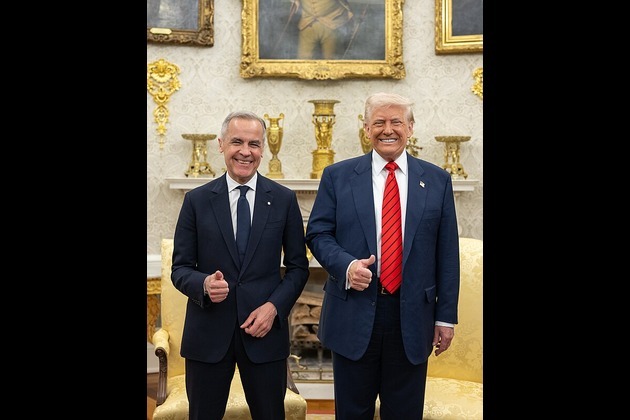Why 2022 is Just the Beginning for AI Regulation
Evertise
30 Apr 2022, 00:54 GMT+10

Several fields use artificial intelligence (AI) to support workflows. Such fields include health, engineering, transport, cybersecurity, etc. AI roles also are seen when companies need to collect user data, process it, use it, and store it.
To achieve these functions, AI uses automation processes. Since AI is used to interact with people's data, artificial intelligence privacy is necessary. This article will discuss AI's problems that make regulation a must. It will also discuss why it must be regulated, focusing on the health sector.
The Problems with AI for Data Privacy
As efficient as AI is, the law must regulate its functionalities. This is because AI-powered machines are not perfect and might not be able to function 100% like humans. Here, we shall briefly discuss the problems related to data collection, storing, and sharing with artificial intelligence.
1. Data Inaccuracies
As great as AI is, it has some issues regarding data identification, profiling, and decision making. For example, AI machines sometimes misclassify data or represent them wrongly. This can lead to data errors. Data errors can be incorrect formatting, transcription errors, inconsistencies, etc.
2. Anonymization
Data anonymization is a key concept when it concerns data sharing. AI-driven machines have access to customers' device types, locations, etc. Companies that collect data must hide the owners of these data from the public view. On the other hand, AI machines can be exploited to reveal the identities of those who own certain data.
3. Data Exploitation
Companies can use AI technologies to track user data, how much they share on their devices & networks, where they visit, etc. However, these activities are conducted unknown to customers. Therefore, AI activities must be regulated.
4. Secret Profiling
Though AI is great, some of its applications might hide from AI system designers, customers, and other stakeholders. This might make it difficult for these people to access processed data, interpret it, and use data insights to make decisions.
Artificial Intelligence and Data Privacy in Healthcare
Just as other sectors are experiencing the benefits of artificial intelligence, the healthcare sector has also recorded many successes. One of the major ways AI is of great help in the health sector is that it aids the free flow of information between health workers and their patients.
AI will experience more regulations even in this sector because there are now AI-based health care products. As a result, sellers of these products must adhere to privacy laws governing the healthcare sector and other relevant laws.
Again, technology has advanced immensely, and cyber issues are increasing daily. Therefore, AI processes must be regulated to avoid misusing or mishandling users' data.
In three major points, we shall discuss areas where healthcare practitioners use AI and how they can comply with privacy laws to regulate AI.
1. De-identification
Healthcare practitioners often conceal the identities of their patients if they need to share their data with outside parties. However, de-identification is relative to several privacy laws.
According to the HIPAA (Health Insurance Portability and Accountability Act), de-identification means removing any evidence that could make an expert recognize a patient through their data. Therefore, health officials should de-identify patients' data before storing them in the AI database to ensure the de-identification process is done accurately.
AI still poses some challenges in de-identification. For example, new data sets are added to the database when an AI product expands. These can alter the prior de-identification process and can lead to privacy issues.
2. Vendor Due Diligence
Before sharing patients' data with third-parties, conduct due diligence. Due diligence is a verification process to ascertain if a third party (vendor) is safe enough to entrust with patients' data. In the due diligence process, ensure that you verify how they prefer to collect customer data and their data storage mode.
Also, examine the vendor's mode of data access management.
It doesn't matter if the third party uses AI to collect or store data; if access to data is not properly managed, it could lead to various cyberattacks.
3. Data Security
Data and security are two concepts that organizations must not separate. If healthcare sectors collect data (whether with AI or not), they must invest in facilities and measures to protect patients' data. Healthcare companies must have enhanced compliance monitoring systems, set up access management, and train their staff periodically to secure data.
Artificial intelligence will continue to be regulated to protect customers' privacy. This will help shed its excesses and keep customers' information safe.
Our systems at Zendata are AI-powered, so we understand what it means to need help with AI privacy. So, reach out to us if you need to automate your privacy or start using AI systems for data processing.
 Share
Share
 Tweet
Tweet
 Share
Share
 Flip
Flip
 Email
Email
Watch latest videos
Subscribe and Follow
Get a daily dose of Charlotte Star news through our daily email, its complimentary and keeps you fully up to date with world and business news as well.
News RELEASES
Publish news of your business, community or sports group, personnel appointments, major event and more by submitting a news release to Charlotte Star.
More InformationBusiness
SectionWall Street extends rally, Standard and Poor's 500 hits new high
NEW YORK, New York - U.S. stock markets closed firmly in positive territory to start the week Monday, with the S&P 500 and Dow Jones...
Canadian tax on US tech giants dropped after Trump fury
WASHINGTON, D.C.: On Friday, President Donald Trump announced that he was halting trade discussions with Canada due to its decision...
Trump-backed crypto project gets $100 million boost from UAE fund
LONDON, U.K.: A little-known investment fund based in the United Arab Emirates has emerged as the most prominent public backer of U.S....
DIY weight-loss drug trend surges amid high prices, low access
SAN FRANCISCO, California: Across the U.S., a growing number of people are taking obesity treatment into their own hands — literally....
Apple allows outside payment links under EU pressure
SAN FRANCISCO, California: Under pressure from European regulators, Apple has revamped its App Store policies in the EU, introducing...
Euro, pound surge as U.S. rate cut odds grow after Powell hint
NEW YORK CITY, New York: The U.S. dollar tumbled this week, hitting its lowest levels since 2021 against the euro, British pound, and...
Business
SectionWall Street extends rally, Standard and Poor's 500 hits new high
NEW YORK, New York - U.S. stock markets closed firmly in positive territory to start the week Monday, with the S&P 500 and Dow Jones...
Canadian tax on US tech giants dropped after Trump fury
WASHINGTON, D.C.: On Friday, President Donald Trump announced that he was halting trade discussions with Canada due to its decision...
Trump-backed crypto project gets $100 million boost from UAE fund
LONDON, U.K.: A little-known investment fund based in the United Arab Emirates has emerged as the most prominent public backer of U.S....
DIY weight-loss drug trend surges amid high prices, low access
SAN FRANCISCO, California: Across the U.S., a growing number of people are taking obesity treatment into their own hands — literally....
Apple allows outside payment links under EU pressure
SAN FRANCISCO, California: Under pressure from European regulators, Apple has revamped its App Store policies in the EU, introducing...
Euro, pound surge as U.S. rate cut odds grow after Powell hint
NEW YORK CITY, New York: The U.S. dollar tumbled this week, hitting its lowest levels since 2021 against the euro, British pound, and...







